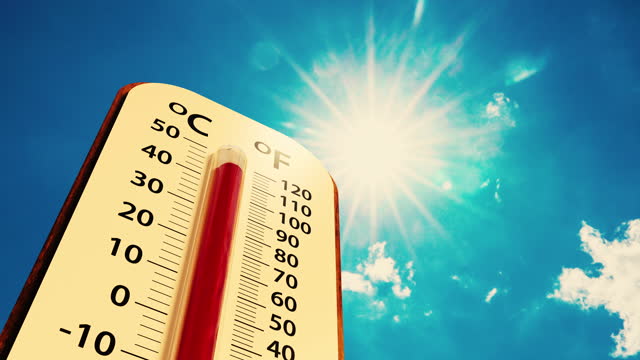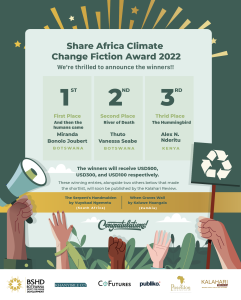By Sharon Tshipa
Since the start of summer a month ago, Botswana residents have been bombarded by heat waves cautionary messages from the Department of Meteorological services. An advisory on what the department termed ‘prevailing weather conditions of extremely hot temperatures’ over most parts of the country.
Walking during the day, especially between 10am and 4pm, for most feels like taking a stroll in a furnace, so much the younger generation has started calling Botswana ‘the place where the sun was born’. Wearing wide-brimmed hats and or carrying umbrellas though strongly advised by the Department of Meteorology is plausible but does not entirely protect one from the charring heat. Over the past week, temperatures have ranged between 38 and 41 degrees Celsius. Even for a desert country like Botswana, these temperatures are ludicrous.
One of the precautionary measures dished by the Department to members of affected areas who need to protect themselves from the adverse weather conditions is that people should avoid prolonged stays under the sun, and if at all possible people should stay under the shade. Truth is some people have jobs that require them to work outside –contractors, builders, street vendors, hawkers, combi conductors, street cleaners, litter pickers and a whole lot more that contribute to the economy of this country one way or the other. Weather conditions like these end up impoverishing further the poor, and denting the economy of the country.
That said it is imperative that COP 22 report on progress following the agreement of the COP 21. The outcomes of the Paris Conference were that countries would keep temperature rises to below 2 degrees Celsius with an effort to limit temperature rises to less than 1.5 degrees Celsius.
Although the verbal commitment soundswholesome, it is the urgent practical mitigation and adaptation of such that COP 22 needs to address in order to make this global problem bearable for all. Temperatures in Botswana have since increased by 1 degree Celsius since COP 21. The Gaborone Dam that catered for the nation’s capital as well as the villages in the outskirts was declared failed last year, due to lack of rains. In consequent the people experienced severe water rationings. Though the plan by the Water Utilities Corporation(WUC) was to ensure people only go for three days a week without water, others ended up going for weeks and others for months without access to portable water.
So to speak, this time around citizens dreaded the arrival of summer because they knew with it would come problems. Some homes have already started going for days without water. A week ago it rained intensely, but as has become the norm each down pour is followed by consistent heat waves that suck up all the water from the ground, leaving plants and animals for dead. Last year, heat waves took people’s lives, three nationals and other lives were lost in neighbouring South Africa. Early this year, the Ministry of Environment, Wildlife and Tourism through the Department of Forestry and Range Resources reported that heat waves and a lack of rain had severely affected Mophane worms which had been visible in some areas of Boteti and Tutume sub-Districts. Due to these weather conditions, a great number of Mophane worms were said to have died and most harvesters who were issued with harvester’s permits had since stopped harvesting and returned home–their livelihoods were affected. With what would they feed themselves and sustain their families?
The effects of climate change have become dire in Botswana. Hence the country has its hopes on COP 22. On October 18 the Pre COP 22 Conference meeting of Parties to the United Nations Framework Convention on Climate Change (UNFCCC) convened in Marrakech, Morocco. Among its many discussion points, it discussed the means of implementation of the Paris Agreement and matters relating to the Pre Agenda and the Global Change Action Agenda. The hope for Botswana is that countries leave up to what they signed up for early this year in New York. That all countries should play an effective role in ensuring that global temperatures do not increase beyond 1.5 degrees Celsius, that all countries create, develop and implement green projects. That countries desist from and ban activities that have encouraged green-house gases to deplete the ozone layer.
Botswana, a shrub savanna and desert can only take so much more heat. Already increasedtemperatures have widened the gap between the rich and the poor. The country now exports more than ever, over 80 percent of its agricultural produce from South Africa. Botswana has become a country were nothing seems to grow to maturity. That said,Botswana can greatly benefit from the Green Climate Fund, of which the money can be pumped into ensuring this mitigation and adaptation transition is not only bearable but beneficial to citizenry.
Summer does not have to be a traumatic ordeal for Batswana. But if temperatures rise, it will be. Residents will continue dealing with the irony of being told to ‘drink more water regardless of their activity level’, while on other hand they are faced with the reality of zero water availability, constant water rationings and lack of rains. An industry that used to be the country’s second largest revenue and or GDP contributor after diamonds, the cattle and beef industry, has since suffered. Farmers are starting to view cattle farming as an impoverishing venture. The cultural venture has since lost its appeal with the young and the old. Once upon a time people used to retire from the corporate world and maintain their farms –this is no longer a wise investment to opt for.
All things said, COP 22 needs to be a success. Not only should the outcomes give hope to nations, but tangible solutions need to be inspired and implemented in order to achieve priorities of the COP 21 concerning mitigation, adaptation, technology transfer, transparency, capacity building, committing to low carbon economy. It’s time to actmore and talk less, before heat waves become the death of a nation. –END-





